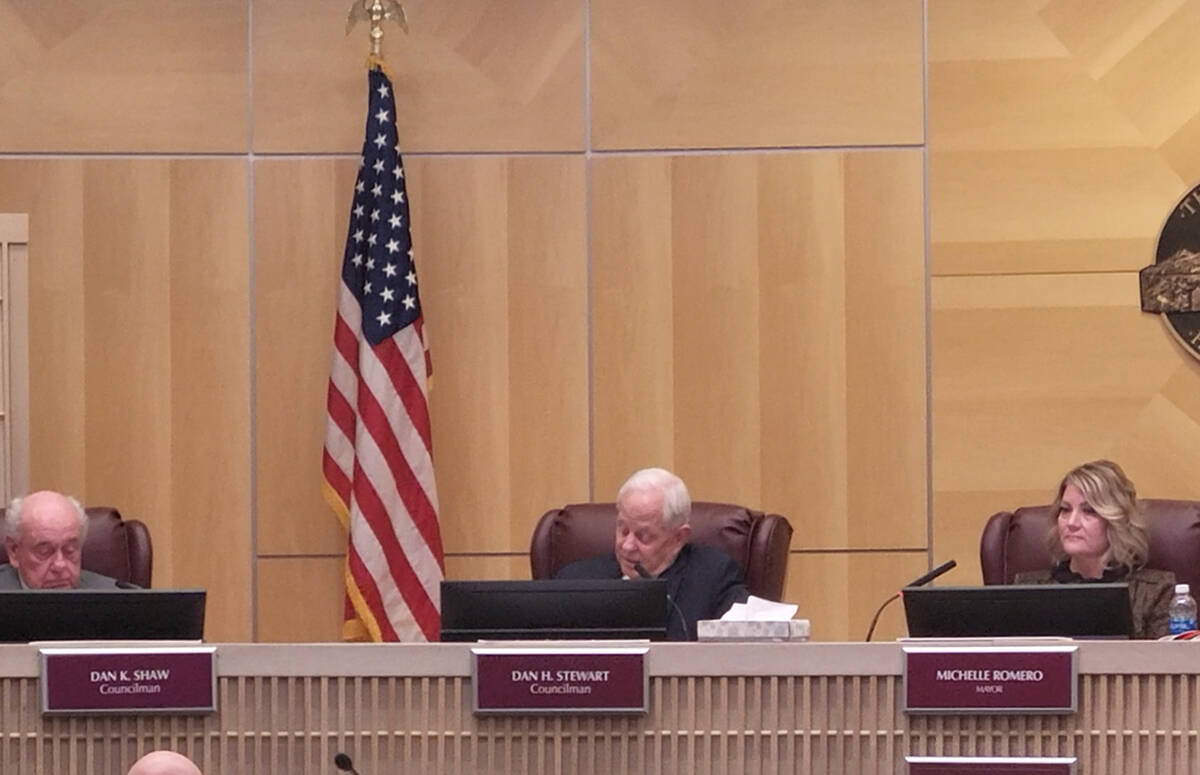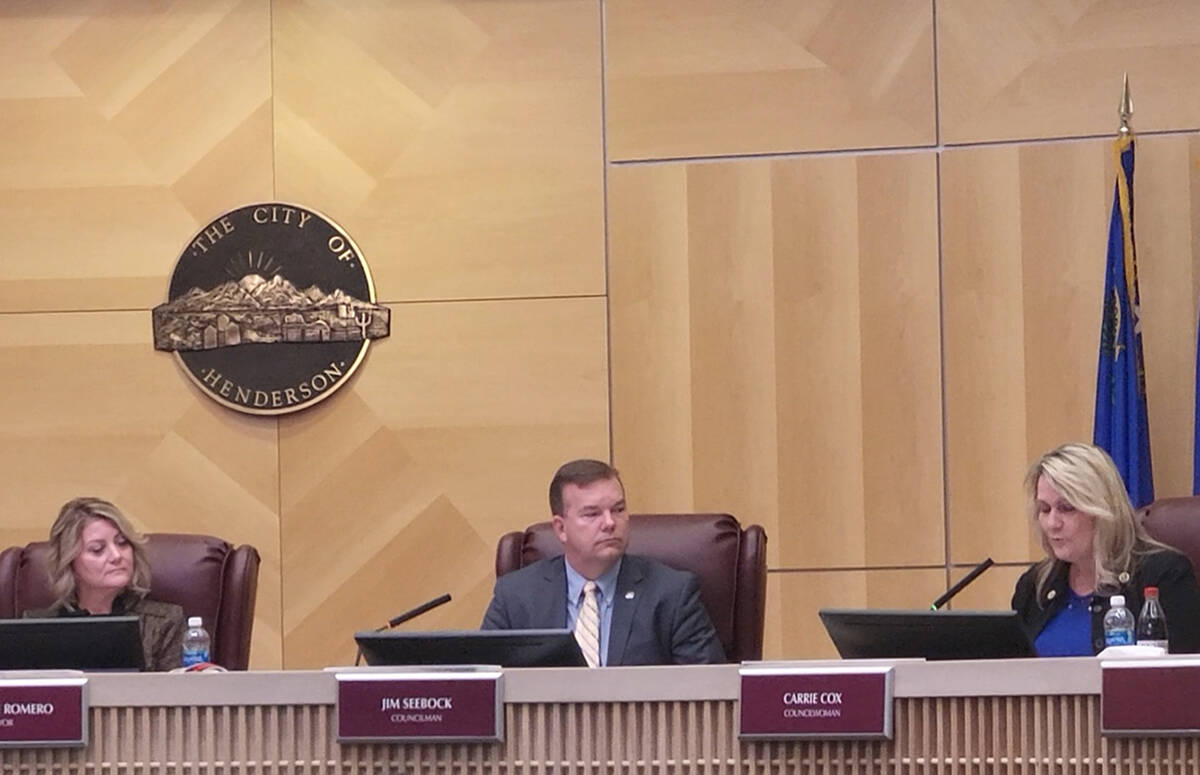‘A solution in search of a problem’: Henderson adopts controversial governance policy
Henderson City Councilwoman Carrie Cox criticized the town’s new governance policy, saying it would disenfranchise voters, before the council adopted it by a 4-1 vote Tuesday night.
The governance policy outlines the rules and limitations for the city’s elected officials, ranging from their role in city functions to interactions with media and conduct during council meetings.
City Clerk Jose Luis Valdez said the policy does not change any city government operations and is meant to memorialize the Henderson City Council rules and operations for future elected officials in response to the recent change to ward-only voting being used to elected city representatives.
The governance policy directs council members to stay out of the actual implementation of policies they pass and leave that to city staff. It also, however, says the council needs to hold the appointed senior members of staff (city manager, city clerk and city attorney) accountable, while not saying how the council is supposed to do that.
Each member of the council discussed the policy before adopting it, and Cox read a statement about why she did not support the document before being the only council member to vote against its adoption.
“I am concerned that this body spent $24,000 to create a policy that is already governed by the city charter, the city ordinance, the state statutes and our common sense,” Cox said at the meeting. “This document represents a solution in search of a problem. If passed, this will become a codified policy to enforce an undefined or ill-defined standard.”
Cox said that the policy violates members’ First Amendment rights and disenfranchises ward voters, among other claims.
“It absolutely disenfranchises voters,” Cox said. “And how it disenfranchises them is because this document lays out that you have to go through the chief of staff before you can talk to a council member.”
Mayor Michelle Romero told Cox that she was sorry “that you feel that way about this document,” after the councilwoman’s initial criticisms.
“In no way, shape or form is this meant to stifle any communication with our residents,” Romero said.
She said the restrictions outlined in the document “lay out the groundwork to make sure that we have all sides of an issue that is being put before us, rather than just one side or another.”
The policy encourages members of the council to talk with their constituents at nonprofit and community events, as well as during the community outreach events organized by the city.
While it does not explicitly forbid talking to constituents about complaints, the policy does call on council members to “direct all complaints or problems promptly to the Chief of Staff, who will be accountable for response, engagement of appropriate staff, and communicating with the customer until the matter is addressed.”
The document also says that after directing complainants to staff, council members “will refrain from discussing the matter with the customer and instead encourage the customer to work closely with staff to resolve the issue.”
The policy also outlines how council members are supposed to interact with the media. It establishes the mayor as the default city spokesperson, and it directs council members to coordinate with the public information office before speaking publicly on city matters and to keep confidential documents secret while also “exercising transparency.”
Cox also said that the city “kept this document from the public until now” and that she believes “it is because they do not want backlash and interference from media or constituents.”
The Las Vegas Review-Journal requested the current working draft of the policy on Oct. 31, but the city rejected the request because it was in the drafting stage and drafts are not considered public records, according to state law. The city did not deliver the policy draft until Thursday.
Repercussions for violating policy range from private meetings between council members to legal action against the violator, depending on how long the violations have gone on.
Contact Mark Credico at mcredico@reviewjournal.com. Follow him on Instagram @writermark2.
























